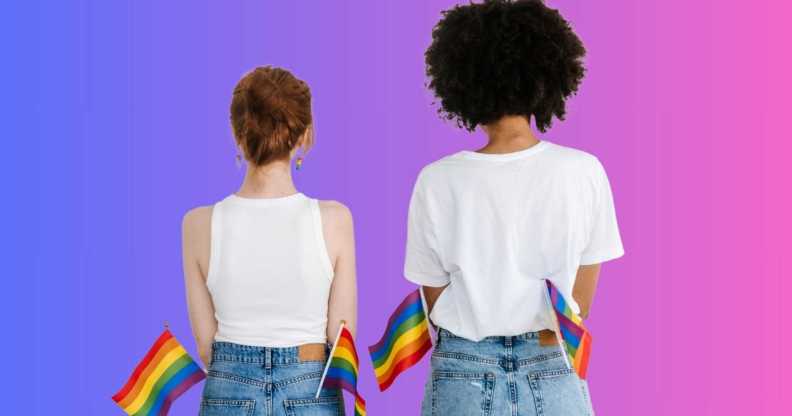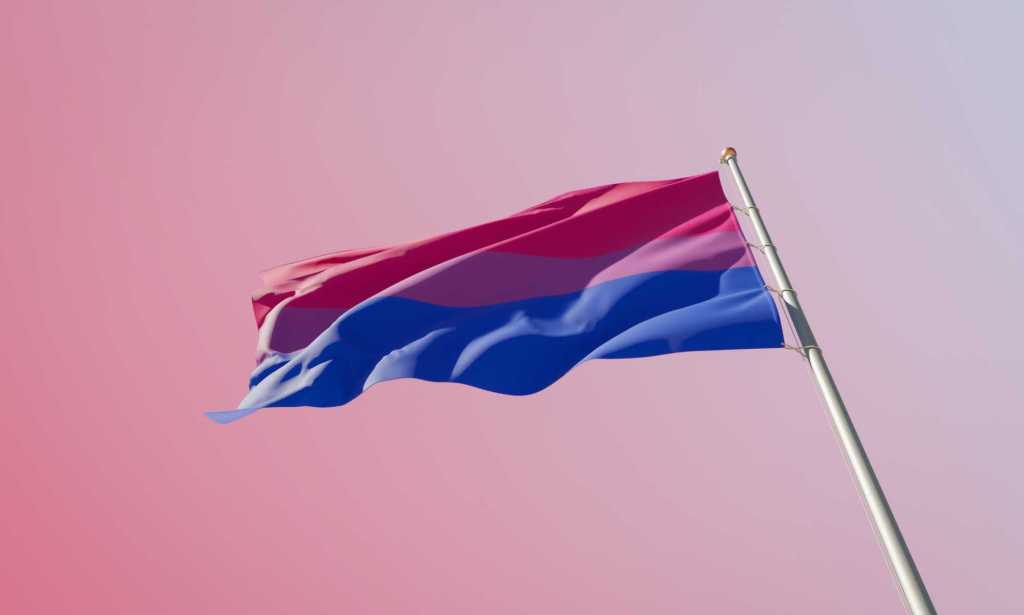Nearly two-thirds of bi people say negative stereotyping causes anxiety and depression

(Getty Images)
New research has shown that nearly two-thirds of bisexual people have suffered anxiety and depression due to negative stereotypes about their identity.
To mark Bisexual Awareness Week, which runs between 16 and 23 September and culminates with Celebrate Bisexuality Day, dating app HER undertook a survey of its bisexual users to gather information about their experiences, alongside anecdotes from team members.
The research revealed that bi people continually face having their romantic and sexual lives stereotyped, with bigoted views on what it means to be bisexual having a negative impact on their mental health.
For those in HER’s bi+ community who date men, just over 77 per cent of the 6,028 people surveyed have experienced people assuming they are straight, while more than 52 per cent have experienced being labelled gay if they were dating a woman.
Bisexual people also continue to face tired, old-fashioned ideas, such as they are “attention-seeking” (almost 66 per cent), their bi identity is “just a phase” (59 per cent) and they cannot make up their minds about their sexuality (just below 64 per cent).
The negativity does not end there. Slightly more than 52 per cent of bi+ men and women reported that they have been accused of being more likely to cheat, while more than two-thirds (about 67 per cent) of those surveyed have been sexualised or fetishised.

Such persistent stereotypes and negative thinking are causing harm to the community, the research also showed.
Of those surveyed, 71.5 per cent said they have internalised these and other bi+ stereotypes, consciously or unconsciously, while almost 63 per cent reported having experienced increased anxiety or depression due to negative ideas about their sexuality.
Bisexual people have also had their experience of being part of the wider LGBTQ+ community affected, with nearly two-thirds of respondents (63 per cent) saying they have felt excluded, and close to 60 per cent having had people question their “authenticity” as a member of the community.
However, even with stereotyping from queer peers, almost 73 per cent of those surveyed said they have a preference for dating within the queer community.
On a more positive slant, the research also found 62 per cent of bisexuals do not feel the need to “prove” their orientation/attraction to a potential partner and close to 78 per cent proudly disclose their orientation/identity on dating apps.
“At HER we know how dangerous stereotypes and assumptions can be,” founder and chief executive Robyn Exton said. “Tolerance and seeing all identities is a core value for us. Bi+ individuals, we see you and celebrate you this week and every week.
“The survey results were both surprising and not surprising to our team. The effects these decades-old stereotypes are having on present-day individuals is crushing.
“To feel you don’t have acceptance from your own community must feel really lonely and we want all our current and future bi+ users to know they have a home here with us.”
How did this story make you feel?

